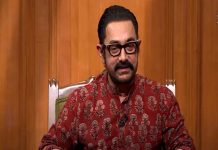
The Indian government has decided to issue a new draft of the Broadcasting Services (Regulation) Bill following widespread concerns and allegations. Earlier, it was claimed that the draft bill had been secretly shared with a select few, raising questions about transparency and fairness.
The Ministry of Information and Broadcasting has confirmed that this fresh draft will be open for public comment until October 15, 2024. This move follows an outcry from online content creators, including Instagram influencers and YouTubers, who were worried that the bill might classify them as “digital news broadcasters.” This classification would subject them to similar regulations as OTT platforms and digital news channels, potentially requiring them to register with the government and adhere to strict content standards.
The original draft of the Broadcasting Services Bill was made public on November 11, 2023, to allow for consultations. However, recent allegations suggest that a revised version was shared secretly with a select group of stakeholders, sparking outrage and accusations of bias. Trinamool Congress MP Jawhar Sircar raised this issue in the Rajya Sabha, demanding more transparency in the drafting process.
Social media was abuzz with claims that the revised draft includes provisions that would place additional regulatory burdens on digital content creators. Specifically, it was suggested that Instagram influencers and YouTubers could be treated as digital news broadcasters. This would mean they would need to register with the government and follow content guidelines similar to those imposed on traditional news channels. Such regulations have raised concerns about freedom of speech and the potential stifling of creative expression online.
Reports indicate that the revised draft attempts to distinguish between digital news broadcasters and OTT platforms. While OTT platforms would still be allowed some creative freedom, they would also be subject to a program code. This is a continuation of the original draft’s intention to impose some regulations on the largely unrestricted OTT content market.
Last week, the DigiPub News India Foundation, an organization representing over 90 digital news publishers, and the Editors Guild of India expressed their dissatisfaction with the Ministry’s handling of the consultations. They alleged that the Ministry held private meetings with selected stakeholders, excluding many key voices from the digital media community and civil society. Despite writing to the Ministry to request a copy of the draft Bill, these organizations have yet to receive a response.
The Ministry of Information and Broadcasting has acknowledged these concerns and promised a more inclusive consultation process moving forward. The revised draft will be released after these consultations, to address the issues raised by various stakeholders. The government is expected to carefully consider all feedback before finalizing the bill.
This development has drawn attention to the broader debate over how digital













